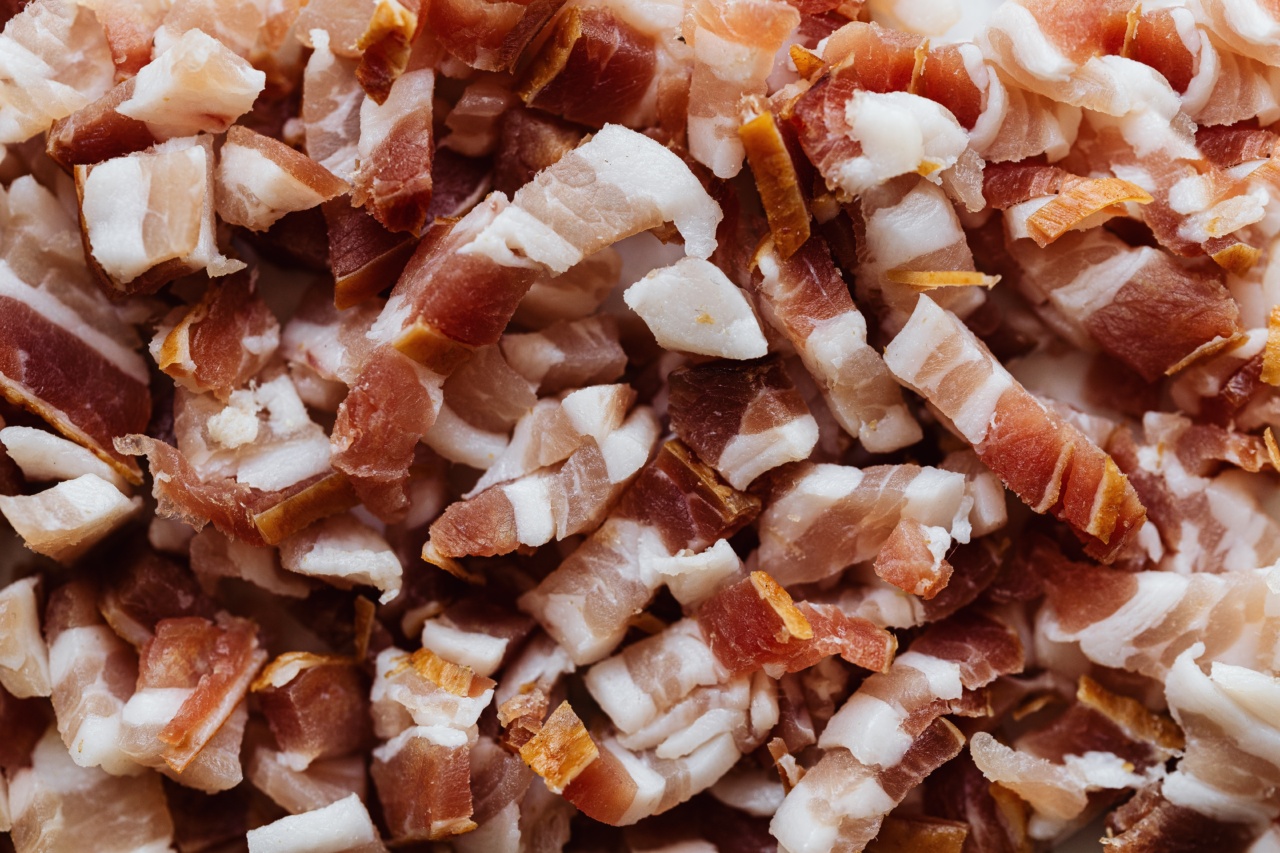Eating is an essential part of life, but sometimes our appetites can get out of control, leading to overeating and weight gain. However, there are ways to easily cut your appetite without feeling hungry or deprived.
In this article, we will share 30 tips to help you reduce your appetite and curb your cravings.
1. Drink Water
Water is essential for our overall health, and drinking enough of it can help reduce your appetite. Often, we mistake thirst for hunger, so drinking water before a meal can help decrease the amount of food you eat.
Aim for at least eight glasses of water per day.
2. Eat Fiber-Rich Foods
Foods that are high in fiber can help you feel full for longer periods of time. This can help reduce your overall calorie intake and aid in weight loss efforts. Foods that are high in fiber include whole grains, nuts, seeds, fruits, and vegetables.
3. Eat More Protein
Protein is another nutrient that can help you feel full for longer periods of time. Eating a protein-rich breakfast, for example, has been shown to reduce overall calorie intake throughout the day.
Good sources of protein include lean meats, eggs, beans, and tofu.
4. Avoid Processed Foods
Processed foods are often high in sugar, salt, and unhealthy fats. These foods can wreak havoc on your appetite, leaving you feeling hungry and craving more. Stick to whole, nutrient-dense foods to help reduce your appetite.
5. Eat Slowly
Eating slowly can help you better recognize when you are full. It takes time for your brain to register that your stomach is full, so eating slowly can prevent overeating.
Plus, slowing down and enjoying your food can help you feel more satisfied and less likely to snack later on.
6. Get Enough Sleep
Not getting enough sleep can disrupt hormonal balance and lead to an increased appetite. Aim for a consistent seven to eight hours of sleep per night to ensure your body is functioning optimally and your appetite is in check.
7. Practice Mindful Eating
Mindful eating involves paying attention to your food and enjoying it without distraction. This can help you tune into your body’s signals and recognize when you are full, preventing overeating.
Put away your phone, turn off the TV, and enjoy a quiet meal to practice mindful eating.
8. Drink Green Tea
Green tea has been shown to reduce appetite and increase metabolism. The catechins in green tea can also help boost fat burning and aid in weight loss efforts. Enjoy a cup of green tea before or after a meal to help cut your appetite.
9. Eat Smaller, More Frequent Meals
Eating smaller, more frequent meals throughout the day can help keep your appetite in check. This can prevent overeating and reduce cravings for unhealthy snacks. Aim for three to four small meals per day, with a snack in between if needed.
10. Avoid Sugary Drinks
Sugary drinks such as soda, juice, and sports drinks can lead to an increased appetite and weight gain. These drinks are often high in calories and can negatively impact your overall health. Stick to water, unsweetened tea, or black coffee instead.
11. Eat Spicy Foods
Spicy foods can help reduce appetite and boost metabolism. The capsaicin in spicy foods has been shown to increase feelings of fullness and reduce calorie intake. Add some heat to your meals with cayenne pepper, chili peppers, or hot sauce.
12. Practice Stress-Relieving Techniques
Stress can lead to an increased appetite and overeating. Practice stress-relieving techniques such as meditation, yoga, or deep breathing to help curb your cravings and reduce stress levels.
13. Eat More Fruits and Vegetables
Fruits and vegetables are low in calories and high in fiber and water, making them great for reducing appetite. Aim to fill half your plate with fruits and vegetables at each meal to help you feel full and satisfied.
14. Brush Your Teeth After Meals
Brushing your teeth after a meal can signal to your brain that eating time is over. This can help prevent mindless snacking and reduce overall calorie intake.
15. Use Smaller Plates
Using smaller plates can help reduce the amount of food you eat. This is because smaller plates can trick your brain into thinking you are eating more than you actually are. Try using a salad plate instead of a dinner plate to help cut your appetite.
16. Don’t Skip Meals
Skipping meals can lead to an increased appetite and overeating later on. Make sure to eat regular meals and snacks throughout the day to keep your appetite in check and prevent unhealthy cravings.
17. Stay Hydrated
Dehydration can often be mistaken for hunger, leading to unnecessary snacking and overeating. Make sure to drink enough water throughout the day to help keep your appetite in check.
18. Use Cinnamon
Cinnamon has been shown to regulate blood sugar levels and reduce appetite. Sprinkle some cinnamon on your oatmeal or add it to your coffee to help cut your appetite.
19. Eat More Soup
Soup is a great way to reduce appetite and increase feelings of fullness. The high water content and fiber in soup can help prevent overeating. Just make sure to choose a low-calorie, vegetable-based soup to avoid excess calories.
20. Chew Gum
Chewing gum can help reduce appetite and prevent mindless snacking. Choose sugar-free gum and enjoy a piece after a meal to help cut your appetite and improve oral health.
21. Take a Walk
Lack of physical activity can lead to an increased appetite and unhealthy cravings. Taking a walk can help reduce appetite and improve mood. Plus, moderate exercise can help boost metabolism and aid in weight loss efforts.
22. Choose Healthy Snacks
Healthy snacks can help keep your appetite in check and prevent overeating. Choose snacks that are high in fiber or protein, such as nuts, fruits, or hummus and vegetables.
23. Cook at Home
Cooking at home can help reduce appetite and improve overall health. When you cook at home, you are able to control the ingredients and portion sizes, making it easier to make healthier choices and avoid excess calories.
24. Avoid Alcohol
Alcohol can lead to an increased appetite and overeating. It can also negatively impact your sleep and hormone balance, leading to further appetite disruptions. If you do choose to drink, do so in moderation and stick to drinks with lower calorie counts.
25. Take a Break
Taking a break from work or other stressors can help reduce appetite and reduce overall stress levels. Make sure to take breaks throughout the day to relax and reset.
26. Use Smaller Utensils
Using smaller utensils, such as a teaspoon instead of a tablespoon, can help reduce the amount of food you eat. This can trick your brain into thinking you are eating more than you actually are, helping to cut your appetite.
27. Drink Coffee
Coffee has been shown to reduce appetite and increase metabolism. The caffeine in coffee can also help boost energy levels and aid in weight loss efforts. Just make sure to limit added sugars and creamers to avoid excess calories.
28. Eat Omega-3 Rich Foods
Omega-3 fatty acids have been shown to reduce appetite and increase feelings of fullness. Good sources of omega-3s include fatty fish, flaxseeds, and chia seeds.
29. Use Spices and Herbs
Spices and herbs can add flavor to your meals without adding excess calories. Plus, some spices and herbs have appetite-curbing properties. Experiment with spices and herbs like ginger, garlic, and turmeric to help cut your appetite.
30. Seek Support
Reaching out for support can help make it easier to cut your appetite and achieve your weight loss goals. Talk to friends and family or seek the help of a professional to get the support you need.
Conclusion
Reducing your appetite can be a difficult task, but with these 30 tips, you can cut your appetite easily and without feeling deprived. Experiment with the tips that work best for you, and be patient with yourself as you work towards your health goals.

























